Since 2015, Southeast Asia has been considered the world’s worst marine plastic polluter. Five countries (Indonesia, Philippines, Vietnam, Thailand, and Malaysia) ranked as part of the top ten countries polluting the oceans and seas with plastics and other wastes.
In 2018, Break Free from Plastic members and environmental groups dispelled this narrative by conducting coordinated clean-ups and brand audits across 42 countries and six continents. Over the 187,000 plastic trash audited, it was found that multinational companies from in the Global North were the greatest source of pollution in Southeast Asia.
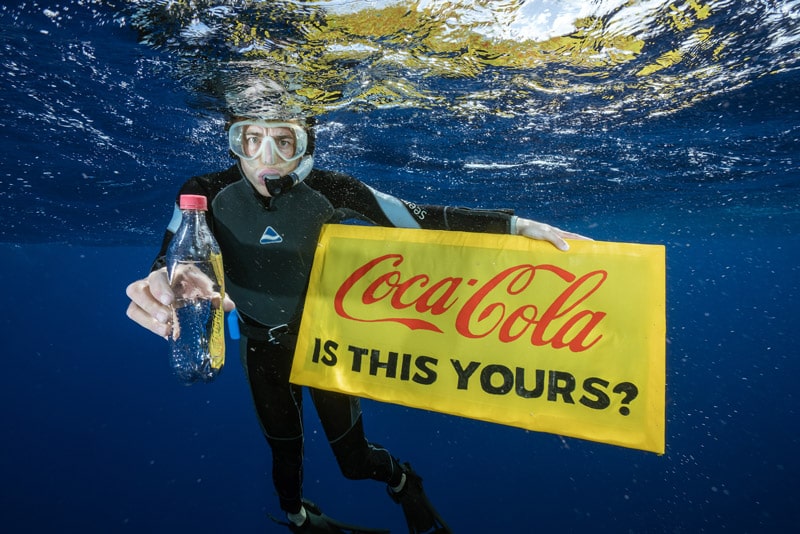
In the same year, prompted by China closing its doors to waste imports, many Global North countries turned their attention to Southeast Asian countries, putting immense pressure on the already limited waste management infrastructure and greatly exacerbating the region’s plastic pollution problem.
Zero Waste for Just Recovery and Resilient Cities
The zero waste approach is an alternative to “take-make-waste” systems that have proven to be ineffective in dealing with the complicated problems brought by a “throwaway society.” In this approach, policies, programmes, and infrastructure of cities and communities are designed to reduce waste at the source. Composting, reusing, and other proven effective ways to manage waste are adopted, while also increasing livelihoods, reducing carbon emissions, and improving public health.
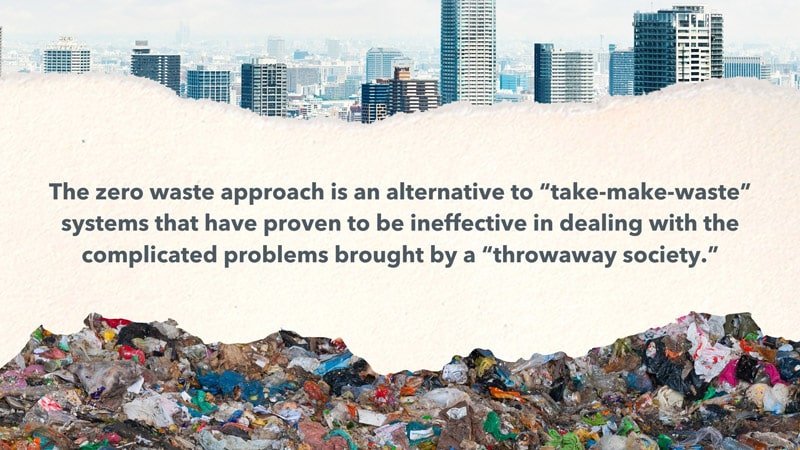
Philippines
The Philippines - home to progressive solid waste management laws - stands as one of only two countries to ban incineration. While several private interests have pushed to repeal this ban, our members in the Philippines have countered these attempts by promoting successful zero waste programmes and maintaining compliance with the national solid waste management law in the country.
With support from the Mother Earth Foundation, the City of San Fernando, Pampanga achieved a drastic 80% waste diversion rate in 2018 from an insignificant 12% in 2012. This also resulted in savings of USD 677,4040 in waste disposal spending alone.
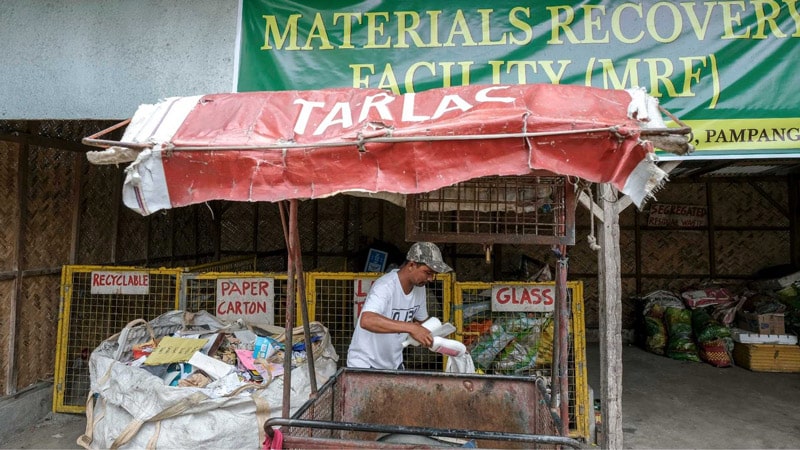
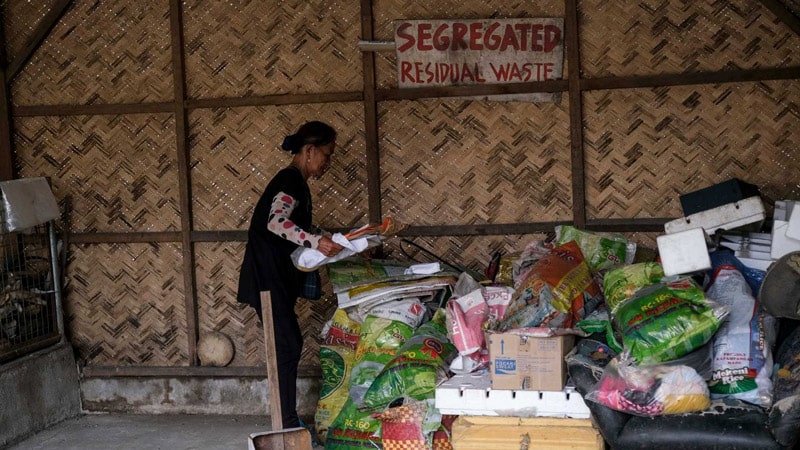
Materials recovery facility in San Fernando, Pampanga, Philippines / Photo by Veejay Villafranca for GAIA
The Philippines is also home to community-led zero waste initiatives in Malabon City, where the waste collection volunteers have been formally integrated into the waste management programme of the city, receiving monthly salaries for their invaluable service.
The Mother Earth Foundation, EcoWaste Coalition, and War on Waste Dumaguete have also worked with communities to implement the zero waste approach in Tacloban City, Siquijor, and Dumaguete City to name a few, proving that community organisation and education is key to creating systemic change towards effective waste management.
Indonesia
In Indonesia, our member Alliansi Zero Waste Indonesia (AZWI) has been spearheading the zero waste approach in several cities of the archipelago. For instance, AZWI and YPBB have supported residents of Bandung City in implementing household waste sorting and waste-to-food urban gardening programme, which has led to a 21.88% reduction of waste amounting to USD 4482.45 to 4767.05 savings in landfill transport costs. YPBB and GIDKP have also supported Bandung City in passing a single-use plastic bag reduction policy that will take effect in 2024.
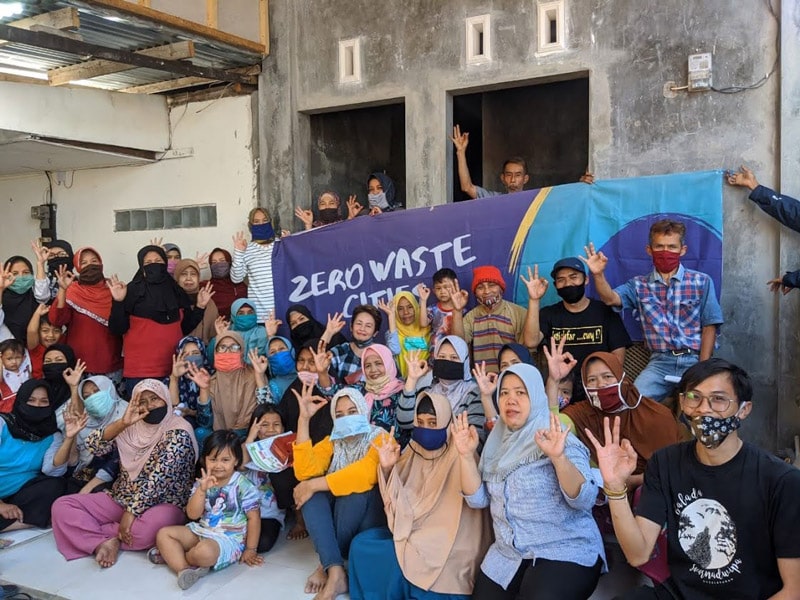
Photo by Rahmat Sutiono - YPBB
Moreover, PPLH Bali and YPBB supported the zero waste city project in Denpasar. Despite facing constraints due to COVID - 19, the organisations continued educating residents on the importance of waste segregation and composting while continuously monitoring waste transport officers and providing PPEs such as protective footwear, face masks, hand sanitisers, and food supplies to ensure their health and safety.
ECOTON has also embarked on supporting household-level waste segregation in Wringinanom Village, Gresik, which led to a 40% reduction in organic wastes disposed of in landfills. Organic waste is composted in an integrated waste processing plant. Through additional income from composting and gardening, this program has provided additional jobs and livelihood opportunities to the community and waste workers alike. ECOTON is also working to pass a landmark regulation to require at-source segregation with the support of the Wringinanom Village Government.
Malaysia
In Malaysia, the Consumer’s Association of Penang (CAP) has supported numerous zero waste policies in Penang, such as the implementation of the segregation-at-source policy. Through these efforts, the state recorded 43% and 46% recycling rates in 2018 and 2019 respectively, leading the country in recycling. CAP partners with households, schools, and other establishments to promote composting methods and gardening. These initiatives have continued regardless of the challenges posed by COVID-19. Currently, Penang is on its way to achieving higher waste diversion and reduction targets.
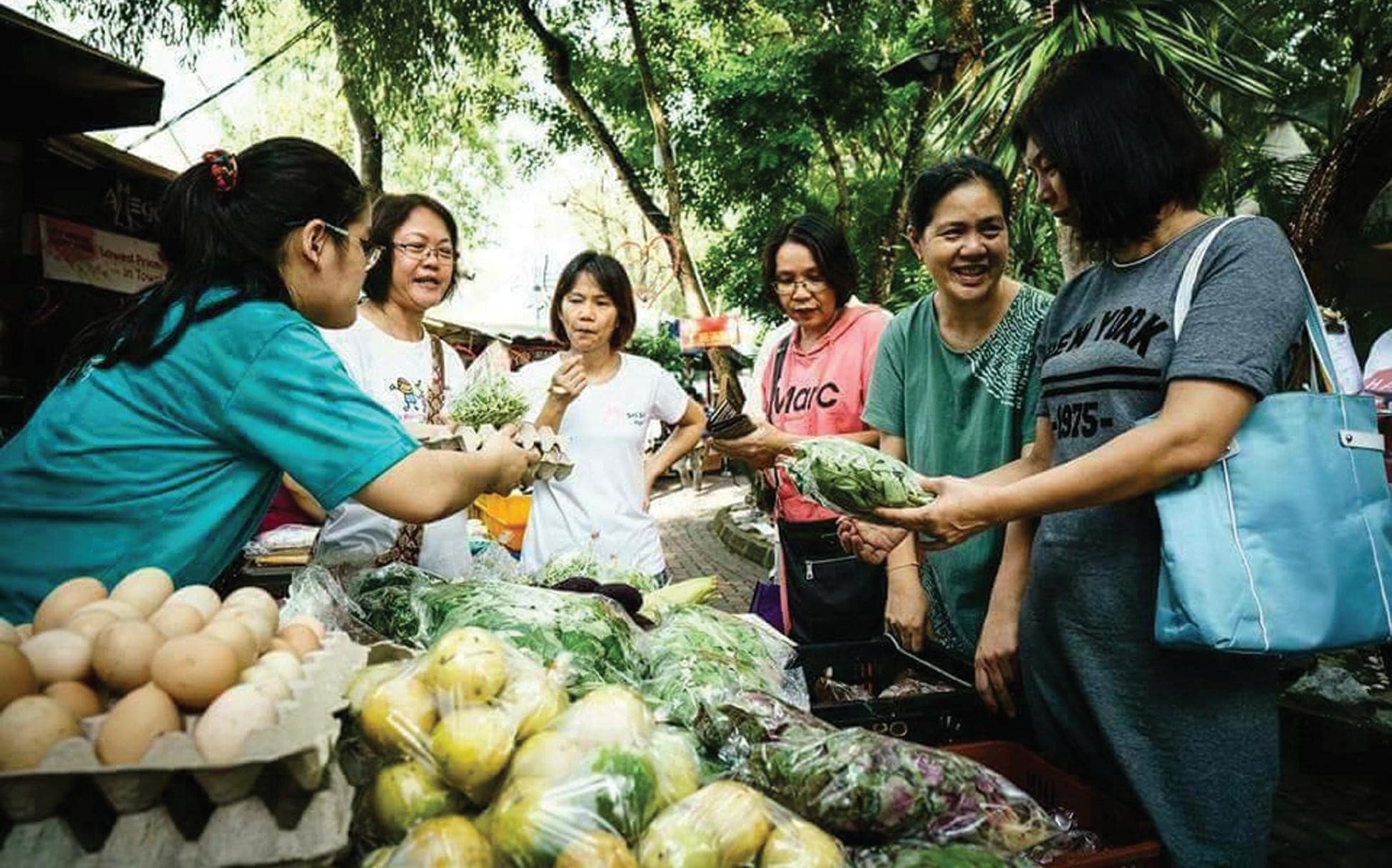
Photo by Consumers Association of Penang
In Vietnam, the Vietnam Zero Waste Alliance (VZWA) has been instrumental in providing technical and financial support to the emerging zero waste city of Hoi An and the coastal province of Phu Yen. Through VZWA efforts, government support for Zero Waste programs has increased, resulting in dialogues in integrating the zero waste approach on the Hoi An environmental master plan, creation of Materials Recovery Facilities, and consideration of a single-use plastic ban. While in Phu Yen, restaurants, hotels, and other businesses have adopted Zero Waste practices in their operations, minimizing the use of single-use plastics.
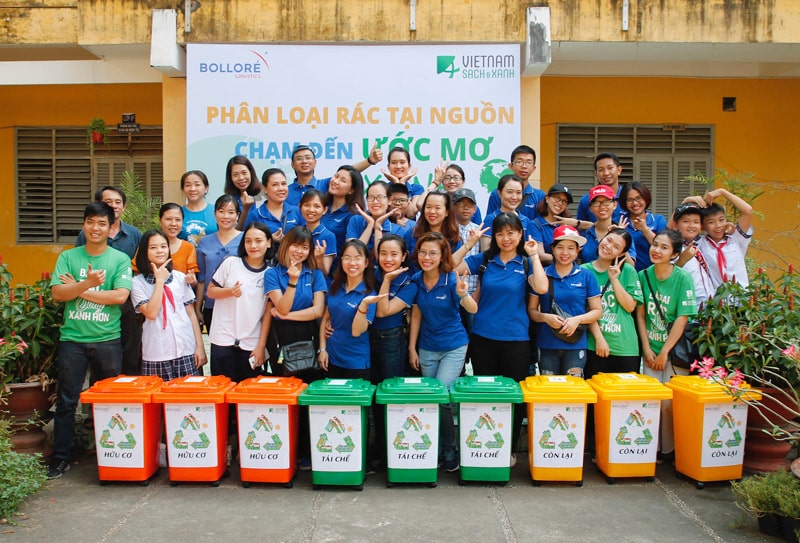
Photo by Vietnam Sach va Xanh
A zero waste world seems to be a distant scenario when we look at the problem. However, through the collective action of our members, we can translate this utopia into actionable changes. All successful zero waste cities in Southeast Asia go through an iterative process of consultations and training to arrive at solid waste management plans that take them closer to the zero waste goal. The vital part of this zero waste journey is taking that first step as a community to make the zero waste approach a part of your city or municipal vision.
The information used in this blog was collected from BFFP member organisations in Southeast Asia. If you’re interested to know more, you may send an email to Janssen Calvelo.




